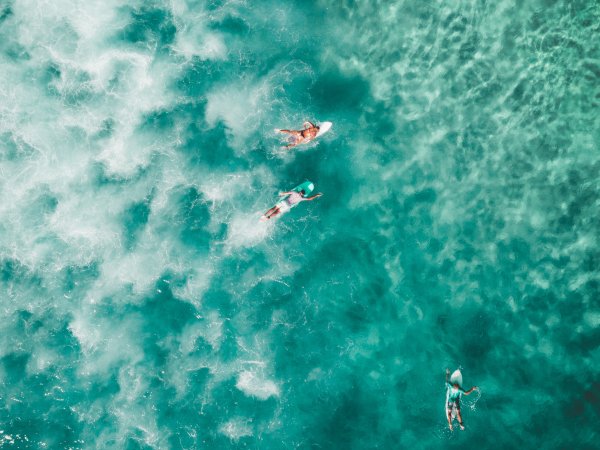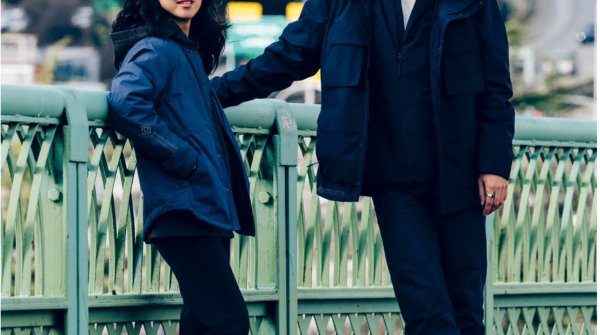The program of the Surf Summit 2023 was more crowded than the beach of Tarifa in best kite weather: It was about corporate social responsibility with a focus on sustainable development, corporate governance and environmental management, customer relations, digital channels, innovation and design thinking. There was a roundtable on the growing Spanish market and finally an overview of current commitments and upcoming Product Environmental Footprint Category Rules (PEFCR) and European environmental labelling. Nevertheless, people were at the centre of all discussions about conscious, creative and efficient leadership - this is the message we can take away from this summit.
"Our priority is to successfully manage the current transition. At the same time, we want to remain attractive to the new generation, as well as unite and showcase best practices in our industry and other sectors." - Jean Louis Rodrigues, President, Eurosima Association
The event brings together suppliers, distributors, retailers, brands and the surf and snowboard community with the aim of strengthening the board sports industry in Europe in a sustainable way. Especially in the field of technical clothing and equipment, consumer demand is constantly changing. Sustainability is not just a buzzword, but a necessity.
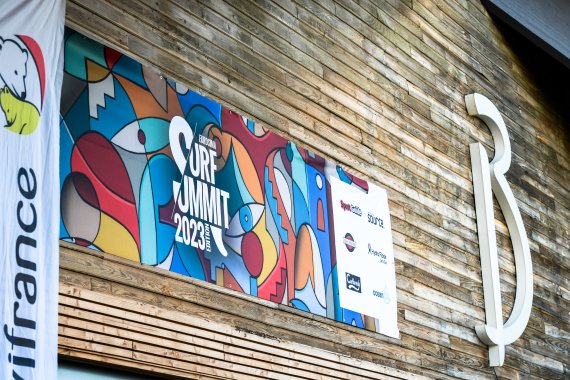
For high performance athletes, head, emotions and performance are interconnected. These issues are essential aspects in adaptation and uncertainty issues related to decision-making and pressure resistance. This is true for companies, especially for hiring and managing teams. This is what the presentations by two Olympic champions, Grégory Mallet and Madeleine Malonga, were all about. The swimmer and the judoka shared their experiences and methods for turning pressure into success. For Grégory Mallet, personal success is only useful in a collective. Today, he uses his experience to help top executives and top athletes*. According to Grégory, mental well-being is a vital need that is underestimated by brands and competitions. The challenge, for example, is to plan communication with athletes during the period of Olympic preparation. For speakers, trust and a sense of security are crucial in the working world, just as they are in elite sports.
"We don't remember individuals, we remember the collective, the nation that wins. And individuals take pride in representing a collective, a country, a brand." - Grégory Mallet
But how do you position yourself in an Olympic year? That's one of the questions Madeleine Malonga answered with Anaëlle Malherbe, sports psychologist and mental coach at INSEP (Institut National du Sport, de l'Expertise et de la Performance): Before 2019, 75 percent of her consultations involved clinical cases. Only 25 percent were performance-related issues. The INSEP expert, who is accompanying Joduka Madeleine Malonga as she prepares for the Paris Olympics, notes a shift in the need for consulting. The parallels with the corporate world are clear: risk management, concentration, emotions, rapid decision-making. Anaëlle Malherbe said, "The goal is to maintain a balance to overcome challenges, and that requires a long-term investment." According to the two women, performance issues are often linked to mental health, and the same is true for team chemistry in a company. Commitment to a mission is an indispensable step for success, they say, because it builds self-esteem and allows people to reinvent themselves to remain high-performing.
"Opening up the conversation about mental health is the job of executives and leaders." - Anaëlle Malherbe, sports psychologist and mental coach at INSEP
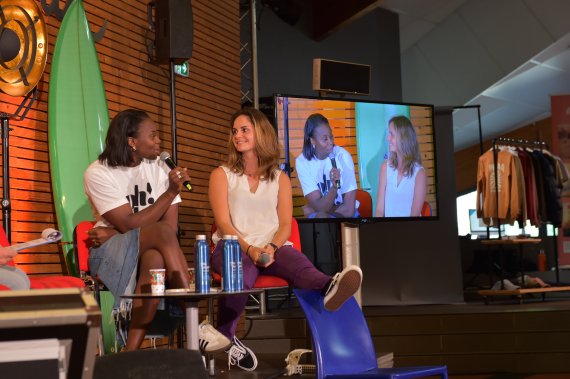
The relationship with work set the tone for the social and community approach to corporate social responsibility (CSR) at Surf Summit. Mathilde Depaulis, a psychotherapist specializing in cognitive behavioural therapy and emotional therapy, placed a special emphasis on emotional intelligence to enhance teams, projects and skills. A sports enthusiast, she developed the podcast and toolset program "Mouvement." For the Surf Summit, she offered a seminar on emotional intelligence. According to the expert, it's important to understand and harness emotions to turn executive loneliness, climate anxiety or psychosocial risk into professional success. These often-overlooked levers of team cohesion and performance can also prevent silent resignations that sometimes damage employer reputations. The B2B version of her game-based approach, rooted in the concrete problems of the corporate world, has already won over several players in the sports sector. She works with them to improve decision-making, conflict resolution or communication.
"Emotional intelligence is the ability to recognize, understand, manage and effectively use emotions both in oneself and in others." - Mathilde Depaulis, psychotherapist and creator of the Mouvement Method
In France, companies have a 28 percent risk of burnout, and 78 percent of employees are exposed to high levels of stress. Pierre Etienne Bidon is working to improve the management of stress and psychosocial risks. He is co-founder of Moka Care, a company focused on mental health solutions for the B2B sector. It offers services to identify and support well-being in companies. According to him, vulnerability and performance are related to mental health. He presented his approach, which is based on time management, motivation and method. For example, his company has helped the Volcom™ brand maintain the well-being of its teams and avoid professional overload. It's time to change the way we look at these performance levers, he says. Given the challenges in recruiting and HR, it's an overdue statement.
"As an employee, it's often difficult to confide in your colleagues or managers. Mental health remains a taboo because we're afraid of being judged." - Pierre Etienne Bidon
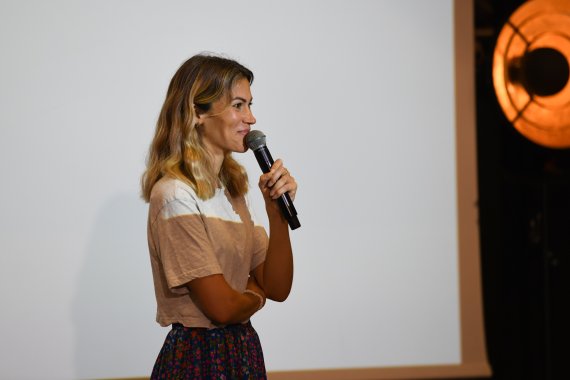
Consumer behaviour changes at breathtaking speed, especially in times of poly crisis. It is very complex for brands to keep up with their clientele and engage them with the right approach, the right product and the right innovation at the right time. Valérie Bossé and Patrick Beauduin from the innovative company Maïeutyk™ France presented the changing landscape of the customer 3.0. According to them, it is time to start a new dialogue with consumers* to explore their ever-changing desires. To understand how this more horizontal dynamic can play a central role in the textile and surf industry, they proposed an H2H (Human to Human) approach. According to Patrick Beauduin, the company must prove its value beyond its expertise.
Due to the distrust of brands, lack of transparency and greenwashing, the reality of customer communication is changing. Echoing Procter & Gamble CEO AG Lafley's statement, "The consumer is now the marketer," monologue must become dialogue, and marketing must become more horizontal. Governance and contributing brand communications could help to better understand and win over the customer. There is a "raison d'être" movement: from competence to cause. With a mix of local values, solidarity and an awareness of collective well-being, the resilient company will be able to combine know-how and ethics. According to the founders, the Rossignol™, ArticFoam™ and Patagonia™ brands are examples to follow. They have proven the sincerity of their statements with commitment and transparency.
"Digitalization is a cultural revolution, the crisis is throwing everything over. It is time to reinvent the customer dialogue." - Patrick Beauduin, marketing expert and co-founder of Maïeutyk
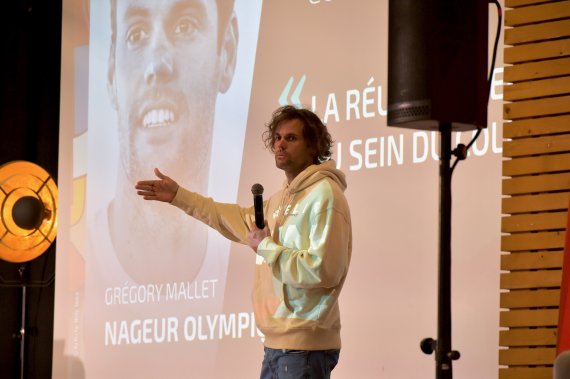
This year's Eurosima Award for Innovation went to Wetty Wetsuit™ and its founder Gregory Pelagahe. Their "Impact Suit" integrates protectors and offers an unparalleled feeling of safety in all wave conditions thanks to its padding technology. It was designed together with Jérôme Sahyoun and Eric Rebiere and is made with natural latex, water-based glue and Limestone™ neoprene.
Florian Auger, the founder and design director of the Outercraft™ agency, responded to the question: how can we prepare companies to remain competitive in the long term by anticipating the expectations of future consumers*? According to the designer, the risks of product innovation should be reduced by observing a lot, studying consumer behaviour, developing operational strategies and being inspired by concrete examples of innovative projects. In his vision of a strategy for product innovation and brand identity, he compared design thinking, adoption curve profiles, and the concept of the pilot project. The critical question, he said, is how to build a sustainable future while maintaining a dynamic economy. Studio Outercraft has just won the award for Product Design in Sport and Leisure at the Paris Design Awards for the Hercule Studio™ brand yoga mat.
In the exhibit hall, the Oxbow™ brand showcased its new, extra-flexible Yulex™ wetsuit. Rip Curl™ showcased the Flash Bomb Fusion wetsuit with near-seamless and zipperless trims that offer remarkable water resistance through sweat technology. This nearly seamless suit is more integrable into the circular economy.
In terms of Circular Economy, the Ederrak™ company has developed a storage and presentation accessory for surfboards. Made from recyclable plastic, these modules are manufactured in France. They are both aesthetically pleasing and useful, allowing boards to be displayed at home or in the store.
Bertrand Piccard of the Solar Impulse Foundation stressed that modernizing ways of thinking and working should lead to decarbonization - and not the other way around. To discuss this topic, Renaud Bettin, VP Climate Action at Sweep™, took the floor. Decarbonization, he said, is not a hurdle to be overcome, but a competitive advantage waiting to be exploited. Sweep is a visionary company committed to the environmental, social and governance (ESG) revolution through software-as-a-service and carbon management. Using cutting-edge technologies, international standards (science-based target, objective sustainable development, ISO 27001, Gold Standard or CDP) and innovative methodologies, it offers a comprehensive range of services. To help organizations reduce their carbon footprint and make progress on their sustainability goals, Renaud Bettin said, the impact of what really matters must be measured. From purchasing to end-of-life, measurements should include impact supplier mapping, in addition to legally required data. But external and internal investments would also need to be backed up with data to become a contributing company. One goal: doing without things that are no longer useful or necessary. For example: less material through eco-design solutions, fewer emissions of greenhouse gases, doing without materials whose use burdens the carbon footprint. Above all, brands should refrain from beating around the bush in their communications. There is no such thing as a product with zero CO2 emissions. Staying authentic and investing in sustainable business models is more worthwhile.
"Decarbonization should become an advantage, an opportunity to reinvent the role of business in society." - Renaud Bettin, VP Climate Action at Sweep
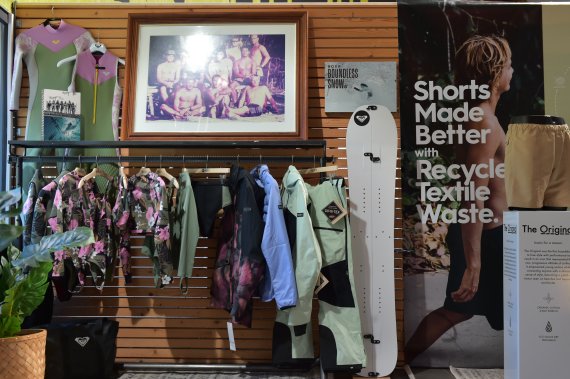
Navigating the maze of European regulations and labelling can be difficult. For some countries, their distribution channels and market maturity make it more difficult to keep track. A roundtable to clarify environmental labeling for the European region was attended by Alicia Boyano Larriba from the European Commission in Brussels, Steve Duhamel Environmental Footprint Manager at Lacoste™, Vanessa Montagne Director of the New Collective Regime (REP) at Ecologic™, Pascal Dagras from the Ministère de la Transition Écologique and Etienne Crozet Product Compliance Manager at Rip Curl™. Around these experienced experts, Stéphane Popescu, founder of COSE 361™ and moderator of this panel, affirms that it is time to guarantee products that meet the highest standards of sustainability and quality. But moving from a mere declaration to concrete implementation requires a clear methodology. While France takes a strict approach to implementation, Europe offers the opportunity to remain discreet by not disclosing information. In order to avoid rebound effects, a methodology for assessing environmental costs in line with life cycle analysis and the Product Environmental Footprint (PEF) has yet to be confirmed.
For Europe, a precise timeline should be validated in the coming months, he said. This would allow the coexistence of an information presentation and existing initiatives that complement the processes. Panellists felt that a compatible mix of internal and external tools for traceability, greenhouse gas quantification, and reporting on social and environmental aspects of corporate governance would be the most effective formula for working on the ecological footprint.
"The problem with data collection is not about size, but about knowing your value chain." - Steve Duhamel, Environmental Footprint Manager at Lacoste.
A second round table was dedicated to the second-largest European market for board sports: the Iberian Peninsula. Jean Louis Rodrigues moderated the discussion, which included François Lassègue, Sales Manager Distribution Europe at Hoff™, Inigo Iraola, Managing Director of Rip Curl Spain, and Diego Roy, Managing Director Spain & Portugal of the Liberated Brand™ Group. These very sports-minded countries have a more cross-divisional approach to distribution, supported by a strong retail network. Due to their outdoor culture and 8000 km coastline, Portugal and Spain (including the Canary Islands) hold a special position in the European board sports scene. While retailers and distributors in the city centres focus on premium and consumer products, tourism is very influential on the coast. Brands like Pukas™, often associated with surf or ski schools, have an important position. International brands are developing alongside large retailers such as El Cortes Inglès™ or Decathlon™, as the average shopping cart remains low and price is the main purchase criterion.
In terms of environmental responsibility, François Lassègue stressed that consumers* are sensitive to price and brand message. Ecoalf™, for example, carries these values in its products and image. In addition, especially for surf suits and products with high added value, the guaranteed repairability of the product is highly valued.
"Spain is lagging a bit behind on the issues of environmental responsibility and the relationship with more conscious consumption is still decided by price. But this will also come to our market." - Diego Roy, Director Spain & Portugal of Liberated brand Group ™
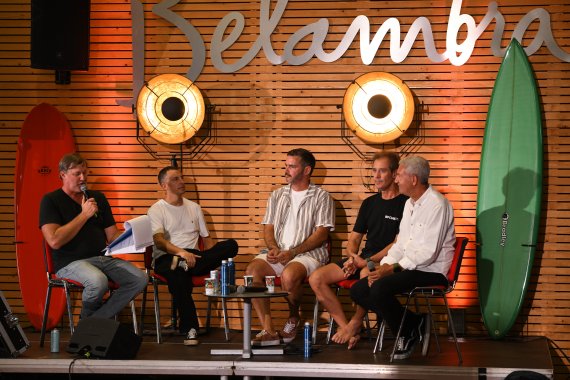
With the Quiksilver™ Festival in the background, the annual gathering of surf sports enthusiasts came to a close. Surf Summit 2023 was a compelling journey through the challenges and opportunities of the textile and board sports industry. Sometimes it's the best athletes who lead the way in transformation. Maintaining a global competitive advantage, leveraging corporate responsibility as a driver of innovation, adaptation and well-being in business are the goals with which the Summit ended. For Jean Louis Rodrigues, president of Eurosima, the priority is to unite good practices from board sports or other sectors.
Staying curious, keeping an eye on the market with authentic commitment, using proven and new tools, and making decisions that incorporate planetary boundaries - these are narratives that Eurosima wants to actively shape to better support its members.
"We wanted to address the needs and expectations of our members through social, societal and environmental issues. There is a need for technologies and programs for data management to accompany a shift to Europe, to compensate for the loss of skills in certain professions and to develop the industry. " - Christophe Seiller, Eurosima Cluster Manager

 Sports BusinessSki Mountaineering Goes Olympic: What Milano-Cortina 2026 Means
Sports BusinessSki Mountaineering Goes Olympic: What Milano-Cortina 2026 Means
- ISPO awards
- Mountain sports
- Bike
- Design
- Retail
- Fitness
- Health
- ISPO Job Market
- ISPO Munich
- ISPO Shanghai
- Running
- Brands
- Sustainability
- Olympia
- OutDoor
- Promotion
- Sports Business
- ISPO Textrends
- Triathlon
- Water sports
- Winter sports
- eSports
- SportsTech
- OutDoor by ISPO
- Heroes
- Transformation
- Sport Fashion
- Urban Culture
- Challenges of a CEO
- Trade fairs
- Sports
- Find the Balance
- Product reviews
- Newsletter Exclusive Area
- Magazine
